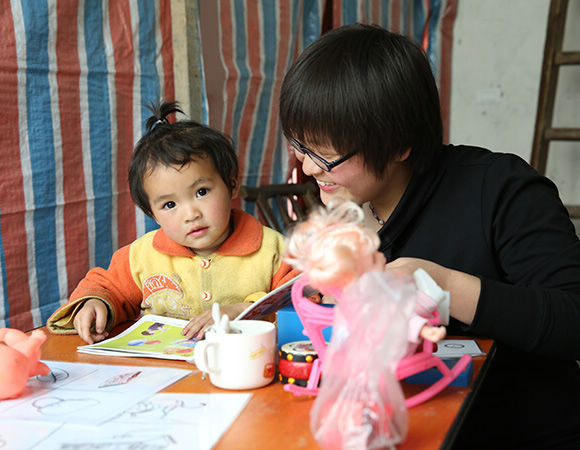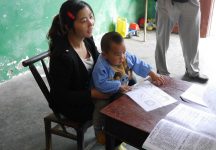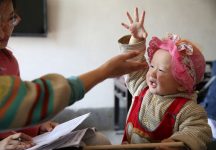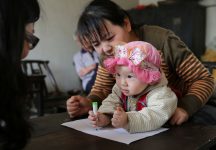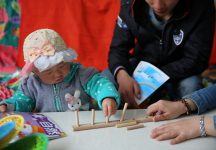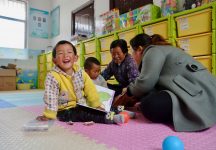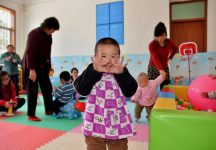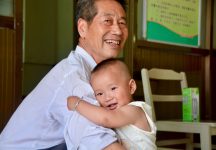Research Design
Randomized Controlled Trial (RCT)
Study subjects: 6-18 month-old babies and their caregivers; 449 children
Outcome measures: Hemoglobin concentrations (measure of anemia); Bayley Scales of Infant and Toddler Development Version III (Bayley-III); caregiver-reported child health measures
Project duration: 12 months
Intervention
Community health workers delivered training and information on interactive parent-child activities, child nutrition and health during bi-weekly home visits over the period of one year.
Impact
Positive and significant impact on children’s cognitive development (0.22 SD).
No impact on language, motor, or social-emotional development.
Significant negative impact on incidence of child diarrhea.
No impact on incidence of fever, cough, or cold.
Takeaways
Shows that a home-based parenting intervention can effectively be delivered by local village-level affiliates of the NHFPC with limited social status and educational background.
Improvements in child development may have been mediated by increased parental investment in interactive activities and a more diverse, iron-rich diet for the child.
Citation
Renfu Luo, Ai Yue, Dorien Emmers, Nele Warrinnier, Scott Rozelle, and Sean Sylvia. “Using community health workers to deliver a scalable integrated parenting program in rural China: a cluster-randomized controlled trial in Hebei and Yunnan.” REAP Working Paper.

